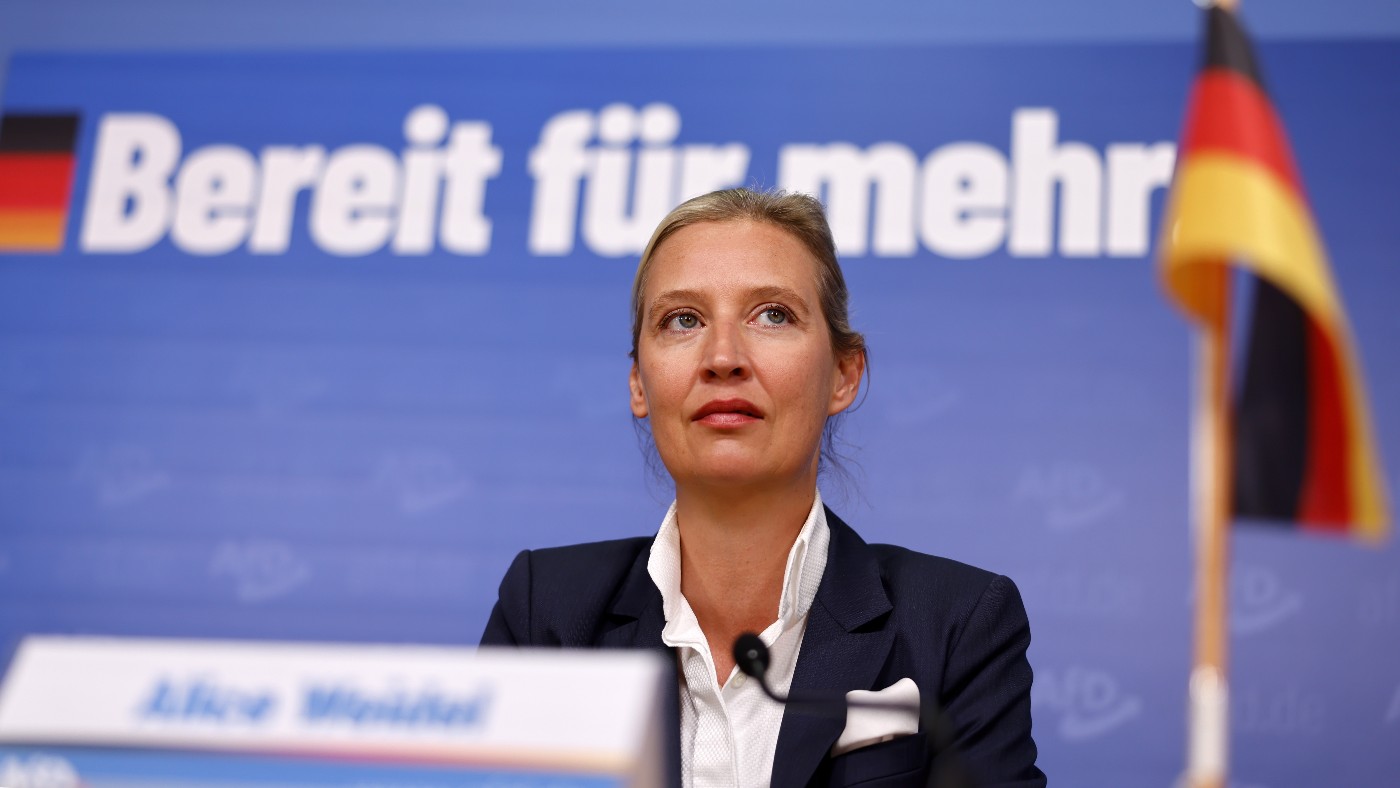The rise of the far-right: Germany’s dreaded alternative
The far-right Alternative for Germany (AfD) party has surged up the rankings in national opinion polls

A free daily email with the biggest news stories of the day – and the best features from TheWeek.com
You are now subscribed
Your newsletter sign-up was successful
Eighteen months ago, the far-right Alternative for Germany (AfD) party looked destined to fade into political "insignificance" in west Germany, said Maria Fiedler in Der Spiegel (Hamburg).
Rocked by an acrimonious power struggle, it then suffered losses in regional elections in the western states of Schleswig-Holstein and North Rhine-Westphalia. Many concluded it was "turning into a purely eastern German party", destined never to make gains outside its heartlands in the de-industrialised former eastern bloc.
How wrong they've turned out to be. The party has surged up the rankings in national opinion polls and last week secured "record-breaking" results in two key state elections. In Hesse, home to the financial hub of Frankfurt, it won 18.4% of the vote, second only to the conservative Christian Democratic Union (CDU); and in Bavaria, it took third place with 14.6%. The results didn't just confirm the AfD as a mainstream national party in Germany; they left its co-leader Alice Weidel "dreaming of participating in the federal government in 2025".
The Week
Escape your echo chamber. Get the facts behind the news, plus analysis from multiple perspectives.

Sign up for The Week's Free Newsletters
From our morning news briefing to a weekly Good News Newsletter, get the best of The Week delivered directly to your inbox.
From our morning news briefing to a weekly Good News Newsletter, get the best of The Week delivered directly to your inbox.
Immigration crisis pushing voters rightwards
As well she might, said Alexander Marguier in Cicero (Berlin). These elections were a referendum on Chancellor Olaf Scholz's governing coalition, made up of his centre-left Social Democrats (SPD), the Greens and the liberal Free Democrats (FDP). The cost-of-living crisis and the proposed ban on new gas boilers have provoked huge discontent: the results were a resounding "vote of no confidence".
The big question is why voters have turned to the hardline AfD instead of the centre-right CDU, said Jim-Bob Nickschas in Tagesschau (Berlin), and the main reason is the immigration crisis. Germany has received 244,000 asylum applications already this year, and that's not counting the million or so refugees it has taken in from Ukraine. The AfD's hard line on immigration and its opposition to arming Ukraine has been the key to its success.
A new German political epoch
Mainstream politicians are still dismissing the AfD as an undemocratic "protest" party, said Alexander Kissler in Neue Zürcher Zeitung (Zurich). But the truth is that voters are starting to see it as a viable alternative. Look how it's increasingly attracting left-wingers and the under-30s.
Indeed, the results of these elections suggest something profound has changed in Germany, said Mark Schieritz in Die Zeit (Hamburg). Owing to its troubled history, Germany's postwar politicians have been at pains to avoid scapegoating migrants, and its voters have mainly rejected the far-right. But the AfD's success in the west suggests that this "postwar consensus" has been shattered: Germany is entering a new political "epoch".
A free daily email with the biggest news stories of the day – and the best features from TheWeek.com
AfD's onward march set to continue
In the short term, Scholz's coalition may benefit from the AfD's surge in popularity, said The Economist. Its members quarrel incessantly; but as all three parties are getting "pasted at the polls", none will now risk collapsing the coalition. Even so, the AfD's onward march looks set to continue, said the FT. With its national polling average close to 22%, it will probably "trounce the opposition" next year in regional elections in three eastern German states – Brandenburg, Saxony and Thuringia.
Other parties now face the dilemma of whether or not to work with the AfD at the local level, in the hope of stripping the party of its outsider status and exposing its empty promises. That would be a mistake. There's no way to "normalise" these "slavishly pro-Kremlin" hardliners who pedal antisemitic, xenophobic tropes. The SPD and its allies should focus on addressing the problems that are attracting voters to the AfD in the first place.
Which is just what they're trying to do, said Nicolas Richter in Süddeutsche Zeitung (Munich): last week, for instance, the interior minister, Nancy Faeser, presented a draft bill aimed at making deportations of irregular migrants easier and faster. But that's just it, said Mark Schieritz: everyone agrees those refused asylum should be deported. But where? You can't just take people back on a plane; a plane needs permission to land and countries of origin often don't want to give it. The awful truth is that solving problems is no longer so important in politics: too many people just want to make political capital out of them.